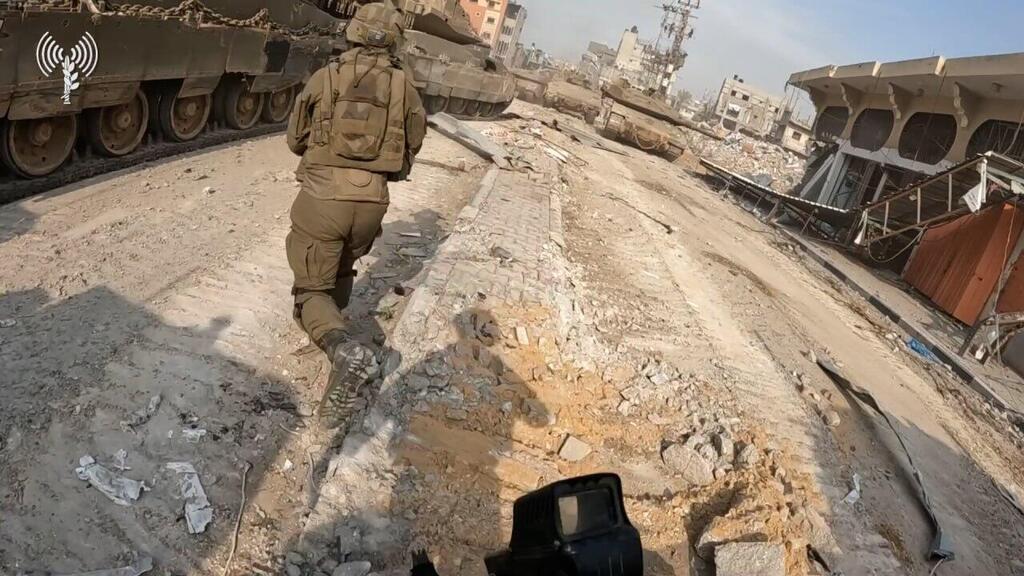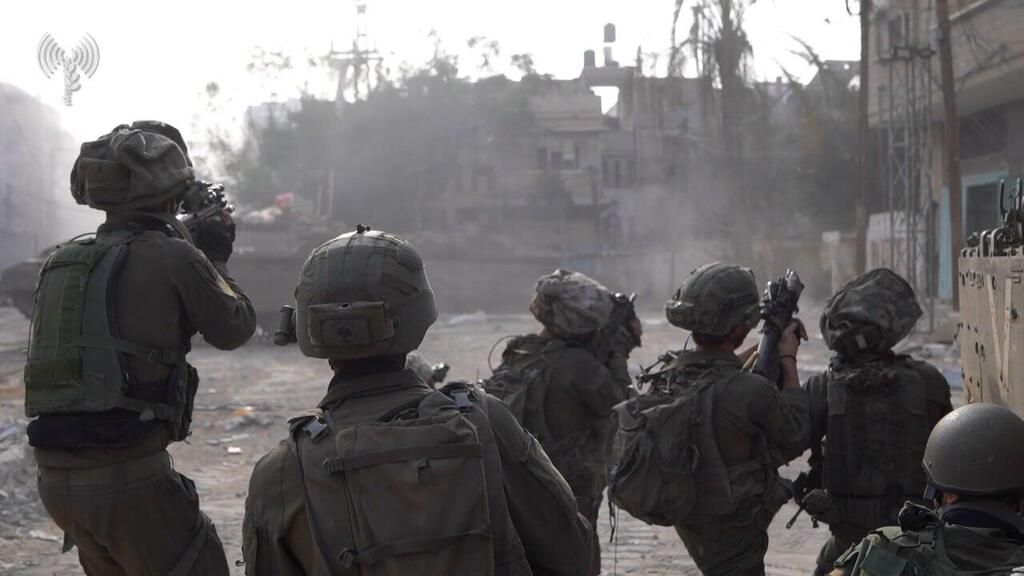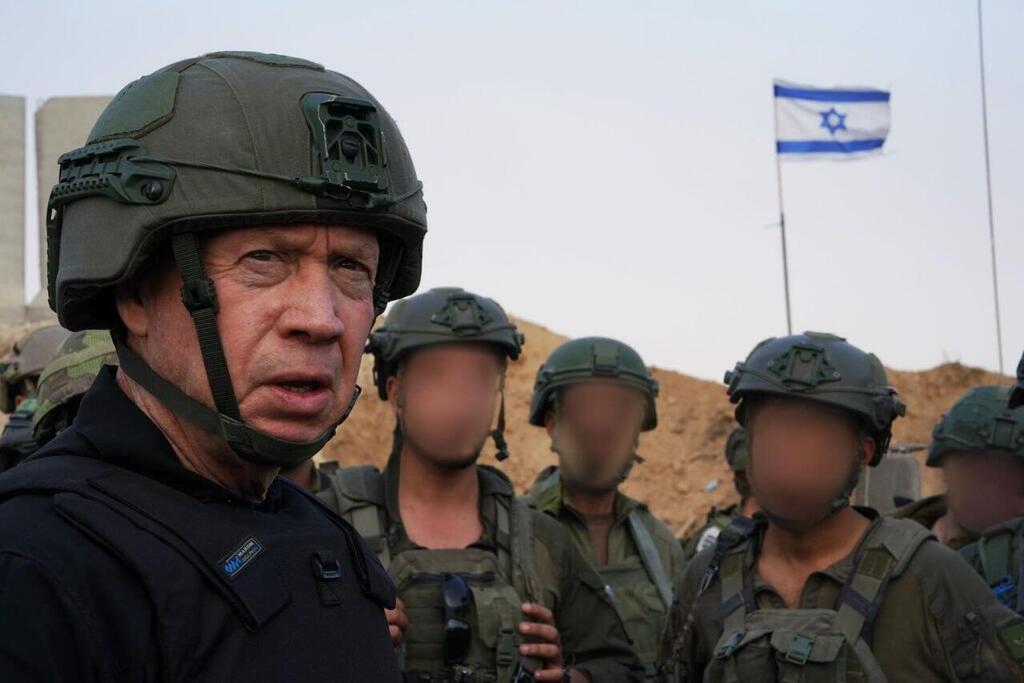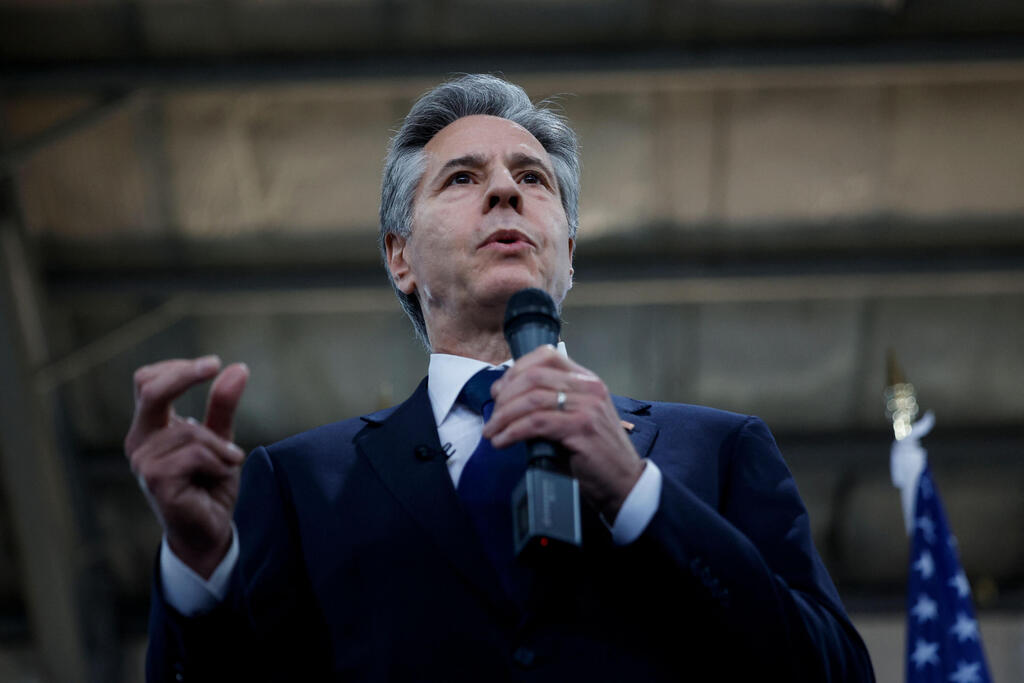Getting your Trinity Audio player ready...
Israel would be shifting from an “intense maneuvering phase of the war” toward “different types of special operations," Defense Minister Yoav Gallant told the Wall Street Journal on Monday.
Read more:
According to the Americans, a public Israeli announcement could make it easier for Nasrallah to "climb down from the tree" and reduce hostilities in the North, facilitating the initiative of presidential envoy Amos Hochstein, who visited Israel over the weekend to negotiate a political settlement with Hezbollah.
Gallant's comments come as U.S. Secretary of State Antony Blinken is scheduled to visit Israel on Monday. Washington wants Israel to declare a shift to the so-called "third phase" of the war, a milder stage aimed at de-escalating tensions with Hezbollah on the northern border. U.S. officials believe an Israeli public statement would give Hezbollah Secretary-General Hassan Nasrallah an offramp to de-escalate and ease hostilities.
Israel has effectively begun the “third phase” of the war, with the IDF executing short, strategic raids against Hamas in northern Gaza after having declared the dismantling of Hamas’ military capabilities there.
However, Gallant told the Wall Street Journal, “We’re close to the next phase in the north, including Gaza City,” where Israeli forces have largely established control, at least above ground. Israeli officers say they are still working to destroy a large network of underground tunnels used by Hamas fighters.
Gallant noted that the third phase would take longer and emphasized Israel’s commitment to its war objectives, including the destruction of Hamas, the release of all hostages and the weakening of the terrorist organization's governance capabilities in the Gaza Strip.
4 View gallery


IDF forces operating in Khan Younis, southern Gaza Strip
(Photo: IDF Spokesperson's Unit)
He said that the fighting in Khan Younis continues despite the dense civilian population in southern Gaza. “We need to take into consideration the huge number of civilians,” Gallant said, adding that military tactics would need to adjust. “It will take some time but we aren’t going to give up.
The defense minister addressed the northern border as an immediate concern of his, saying, “The priority isn’t to get into a war” with Hezbollah but “80,000 people need to be able to go back to their homes safely.”
He stressed that if no agreement is negotiated to make that possible, Israel wouldn’t shrink from military action. “We are willing to sacrifice,” he said. “They see what is happening in Gaza. They know we can copy-paste to Beirut,” the Lebanese capital.
Gallant told The Journal that Hamas’ Oct. 7 assault represented a major failure of deterrence and that intelligence indicates that the terror group’s leaders didn’t expect Israel would mount a large-scale ground operation in response.
4 View gallery


IDF forces operating in Khan Younis, southern Gaza Strip
(Photo: IDF Spokesperson's Unit)
“They didn’t take it seriously, even when we first went in,” Gallant said. He said Israel’s ultimate goal is to persuade its enemies that any future attack would provoke ruinous consequences. “Should Hamas, Hezbollah and Iran be allowed to decide how we live our lives here in Israel?” Gallant asked. “This is something we don’t accept.”
The war cabinet will convene on Monday at 6pm Israel time to discuss Israel's stance ahead of Blinken's arrival.
Blinken's itinerary starts with a late Monday evening arrival, with official meetings in Israel beginning Tuesday. He's slated to meet President Herzog, Foreign Minister Israel Katz, Prime Minister Benjamin Netanyahu, members of the war cabinet, Defense Minister Gallant, Minister Benny Gantz, heads of Shin Bet and Mossad and families of hostages. He'll host a press conference on Tuesday evening and meet with Opposition Leader Yair Lapid on Wednesday before leaving the Middle East.
Blinken is advocating for expanded and varied humanitarian aid to Gaza in addition to addressing war-related issues. Germany's Foreign Minister Annalena Baerbock, on her fourth visit to Israel since the war began, echoed this sentiment. Both diplomats are committed to securing impactful humanitarian relief for Gaza, reflecting a widespread concern within the international community.
Blinken's visit focuses on post-war Gaza, seeking Israel's strategy for governance, security and civil management, as well as funding and other concerns.
According to Reuters, he's also pressing moderate Arab nations to engage in Gaza's post-war process and is collecting their viewpoints on Gaza's future to present to Israel.
Recent discussions between Strategic Affairs Minister Ron Dermer and the head of the Southern Command have focused on post-war strategies and the Palestinian Authority's potential role in a reformed capacity for Gaza's reconstruction.
The U.S. is expected to urge Israel to publicly reject proposals for the voluntary migration of Gaza residents, as the IDF maintains security in the Strip and regulates the movement of residents from south to north.





